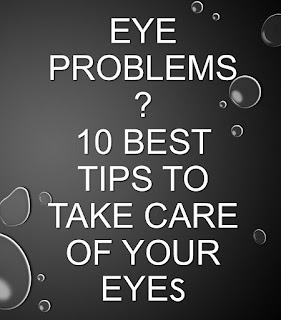How To Take Care Of Your Hairs.
Healthy hair is a combination of a well balanced diet and good hair regimen.
Whether you are searching for homemade treatments for your hair, repair damaged dry hair or causes of hair loss for men and women. All about hair care will help you find foods for healthy hair, hair thickening products and tips to help you manage your hair. Tips for healthy hair by exploring commercial hair products; home treatments and remedies for hair.
Common hair problems and remedies
Hair loss or thinning (alopecia) – Normal hair loss occurs but excessive use of heating irons can lead to hair thinning.
Dry damaged hair – Protect your hair even in the summer. The sun can be harsh for both you skin and hair.
Itchy, flakey scalp – Simple solution at first, rinse the shampoo and conditioner out thoroughly.
Limp, lifeless hair – Volumizing hair spray and preferably oil free.
Gray hair – Save yourself the agony, gray is no longer dull. So wear your grey hair with pride !
How to Have Healthy Hair
If your hair is dull, frayed, or damaged from the use of dyes and chemicals, you can start right now to get healthier hair. Using healthy washing and styling habits, avoiding harsh hair treatments, and eating a nourishing diet will have your hair looking healthy again in no Time.
Change your washing routine.
Do you wash your hair every single day? This can really dry it out, since you're washing away the oils your scalp produces to keep your hair shiny and healthy. Washing every day can also lead to oily hair, since stripping your hair of its oils causes your oil glands to go into overdrive. Try this routine instead:
Wash your hair just three or four times a week. Giving your hair a break in between washings will restore its balance. It might be a little oily for the first week or so, but your hair will soon look more healthy and vibrant than ever.
Wash your hair with cold water. Washing with hot water is hard on your hair and can lead to split ends and frizz. Washing with cold water helps your hair shaft close, resulting in shiny, bouncy hair.
Handle your hair gently.
Think of your hair like your best silk dress. After hand washing it, would you ball it up and wring it out? No, that would destroy its shape and fibers. Your hair is similarly fragile and needs to be treated with care to stay healthy.
After washing your hair, gently pat it dry with a towel instead of wringing it out. Let it finish air drying.
Use a comb instead of a brush. Forcing a brush through tangled hair can cause it to rip and break. Use a wide-toothed comb to gently work through the tangles.
Use heat styling devices sparingly.
Put away your hair dryer, straightener, curling iron, and hot rollers unless you have a special occasion at hand. Applying heat to your hair can damage it, so it's best to let your hair air dry instead.
If you want to use the blow dryer sometimes, use it on a cool setting.
When you do use heat styling devices, be sure to put a protective serum in your hair beforehand.
Use homemade treatments like egg yolk and olive mask, vinegar, and plain yogurt or sour cream. Look on websites (maybe or not this one) for instructions.
Use Egg oil (Eyova): Egg oil contains Omega-3 fatty acids, antioxidants and cholesterol and is like a complete solution to hair problems.
Manage stress
Too much stress is bad for health and beauty, but did you know there’s a known connection between stress and hair loss, too? Constant stress can cause cortisol levels to spike, which can contribute to increased hair shedding. To relieve stress and its damaging effects on your hair, try meditation, regular exercise, keeping a regular sleep schedule, or any other activity that helps you decompress.
Eat healthy and good food. Good or balance diet food are also very important for our hair. Eat food full of iron, Protein, vitamins etc.. like
Iron and zinc help hair follicles to grow, says Wilma Bergfeld, MD, a dermatologist at the Cleveland Clinic. She suggests eating lean red meat, which is rich in both nutrients, twice a week. Pair non meat sources, such as soybeans or lentils, with a vitamin C-rich food like an orange to boost iron absorption.
Vitamin D
Several studies have found that vitamin D may help activate hair growth. However, D is a tricky vitamin. Few foods contain it naturally, and although sitting in the sun for a few minutes a day can help your body produce more of it, many experts advise against it due to the increased exposure to harmful UV rays. Your best bet? Take a 1,000 IU supplement daily.
Protein
Protein is one of the building blocks of life, promoting cell growth and repair—and it boosts your hair strength, too! Women should get at least 46 grams a day (3 ounces of chicken has about 23). Follow this guide to determine exactly how much protein you should be consuming daily.

